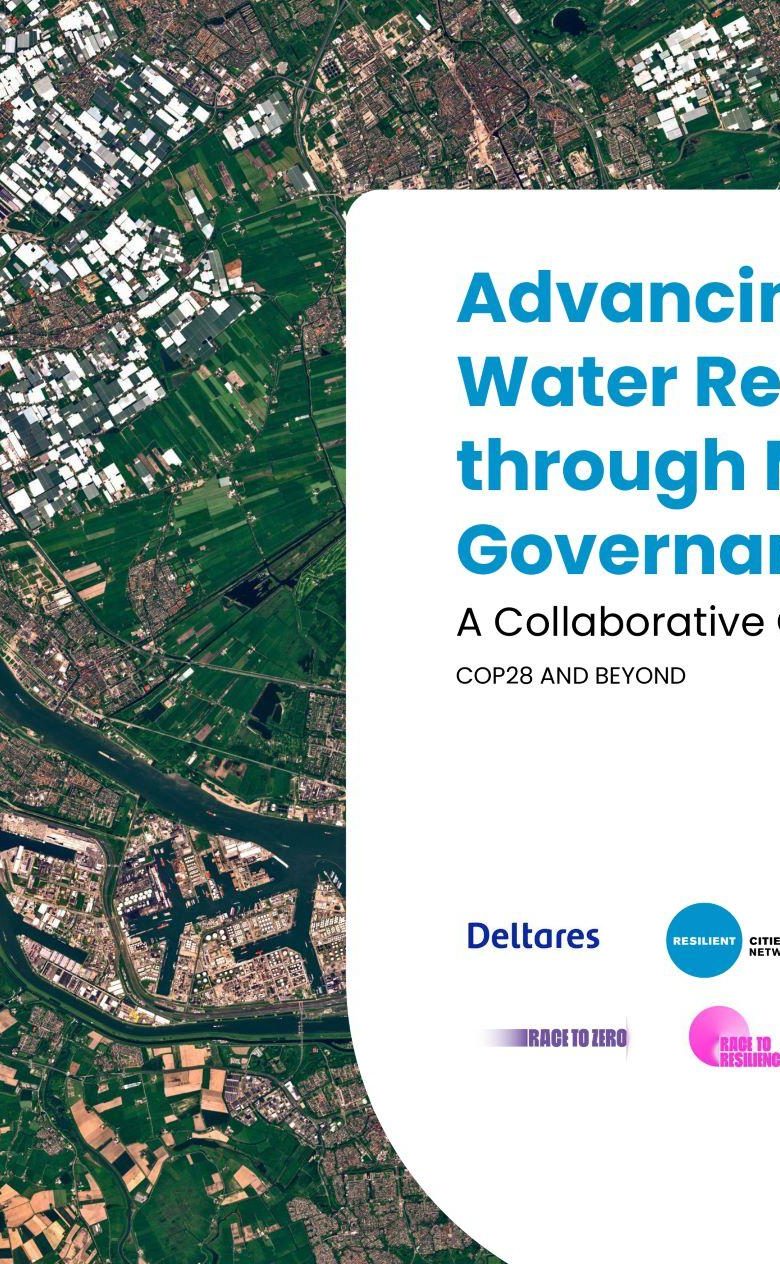Multi-level collaboration key for urban resilience
Cities are crucial in the fight against climate change, but their efforts must be integrated with those at local, regional, and national levels. A new paper highlights the importance of a multi-level governance approach, the need for collaboration, and regular and sustained dialogue. The paper is a follow-up from COP28 in Dubai.

Download the paper on multi-level governance approach
The UN estimates that the world’s urban population will grow to 6.3 billion in 2050. This rapid pace of urbanisation means populations are more vulnerable to the risks of climate change, including flooding, droughts, and water scarcity and pollution. Countries systematically present Nationally Determined Contribution (NDCs) and develop National Adaptation Plans. Yet in 2022 only 47 of 193 NDCs contained a strong urban content, with 70 NDCs featuring a low or no urban content at all. To be effective, the actions set out in those plans must be implemented across multiple levels of governance. Cities can play a leading role in climate, but there must be synergy between local and national actions.
Multi-level governance approach
A new paper, a joint effort by Deltares, the Resilient Cities Network, and ARUP, addresses the pressing global issue of urban water resilience and calls on a multilevel governance approach to tackle these issues. Collaboration across various levels of government is key; for strategies to be effective, they must transcend administrative boundaries, align policy and approaches, and integrate water management with urban planning. A multi-level governance approach also allows actions to be more efficient and make a real difference.
The paper is a follow-up from discussions at a High-Level Multilevel Roundtable at COP28 in Dubai, and is supported by the CCT and the COP28 Presidency. Building on the Cities Solve, Cities Deliver campaign at the 2023 New York Water Week 2023 and the 2023 UN Water Conference’s Water Action Agenda, it calls for a regular dialogue that encourages commitment and synergy between national and local actions and governments.
The paper also states that dialogue and cooperation must also extend beyond governments, and include academia, the public and private sectors, NGOs, and communities.
Advancing urban water resilience
In the run up to COP28, Deltares called
for water to be regarded as a dealmaker in climate action, promoting its role in practical solutions, peace promotion, and achieving climate goals through collaboration between the climate community and the water sector.
Deltares is actively engaged in advancing urban water resilience through innovative research and practical solutions. Our work focuses on integrating our technical expertise and fostering multi sectoral synergies to advance sustainable water management practices. By collaborating with stakeholders, including governments, communities, and organisations, Deltares contributes to the development of comprehensive strategies that look to promote resilience in urban water systems, ensuring inclusive outcomes for future generations.
